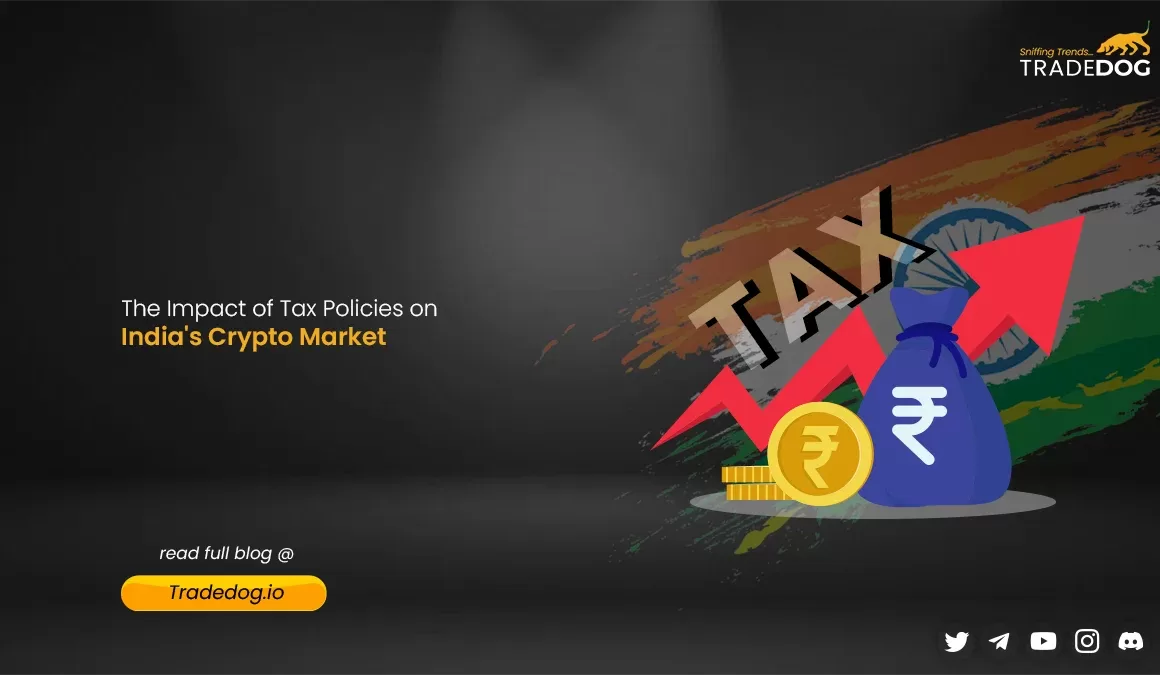Quick Links
India has witnessed significant revenues from its recent taxations on cryptocurrency transactions, with the Central Board of Direct Taxes (CBDT) gathering over $12 million from 1% TDS (Tax Deducted at Source) on crypto transactions in this financial year.
Overview of Crypto Tax Collection
In the 2022-23 Budget speech, Union Finance Minister Nirmala Sitharaman proposed to impose a direct 1% tax on all cryptocurrency exchanges starting July 1, 2022, in the light of a ‘phenomenal increase in transactions of digital assets. During a conversation with ANI, the tax board chairman, Nitin Gupta, disclosed that a massive 700 crore INR (around $84 million) in TDS has been collected in this financial year, combining revenues from online gaming corporations and cryptocurrency transactions. The above figure does not include the income tax of 30%, which is charged from the transfer of any digital asset.
Impact after Taxation Policies
India’s cryptocurrency market has skyrocketed, prompting the government to take regulatory and fiscal measures. Post the implementation of these tax policies, there’s been a notable shift in trading behavior where a sizable number of traders, in figures around 36,000 crore INR (close to $4.3 billion), have pivoted to international platforms, which do not levy the TDS.
The purpose of levying heavy tax regulations still needs to be fulfilled, as India has been ranked number 1 in a recent excerpt published by Chainalysis on the Global Crypto Index. This index assesses over 150 nations on numerous metrics, aiming to discern the fundamental adoption of digital currencies. In an interview with CryptoNews, Chief Public Policy Officer at CoinDCX, Kiran Mysore Vivekananda, said:
“Last year, when India introduced TDS (Tax Deducted at Source), they intended to discourage people from investing in crypto. The Chainalysis report shows India as the leading country in adopting crypto. And our data shows that 18% of active users in the top five foreign exchanges are Indians. That clearly shows that adoption has not come down. So the purpose of introducing TDS has failed.”
India’s Stance on Future of Cryptocurrencies
The recent G-20 Summit emphasized establishing global cryptocurrency regulations, with India prioritizing the development of guidelines for cryptocurrencies. The country aims to enact legislation within the next five to six months. It is developing a five-point global legislative framework including an enhanced Know Your Customer (KYC) process for cryptocurrency companies, mandating crypto platforms to provide real-time proof-of-reserve audits, implementing a consistent taxation policy across all nations, granting cryptocurrency exchanges a status equivalent to authorized dealers as per the guidelines by RBI and requiring a Money Laundering Reporting Officer, to be compulsory for cryptocurrency platforms.
Gaurav Mehta, the co-founder of Catax, a crypto taxation assistance platform, told CryptoNews:
“It’s crucial to address TDS’s applicability on international exchanges promptly. Establishing a clear process and implementing a proper disclosure mechanism will likely enhance compliance and overall collection figures.”
Closing Thoughts
In light of India’s vigorous steps in crypto taxation, the nation has accrued remarkable revenues but has also observed an unforeseen shift in trading behaviors. Despite the regulatory intent to moderate crypto adoption, India’s preeminence in the global crypto arena still needs to be improved. As the nation sets its course to align with international standards, the evolving landscape reflects the challenges and opportunities inherent in regulating this dynamic digital frontier.









